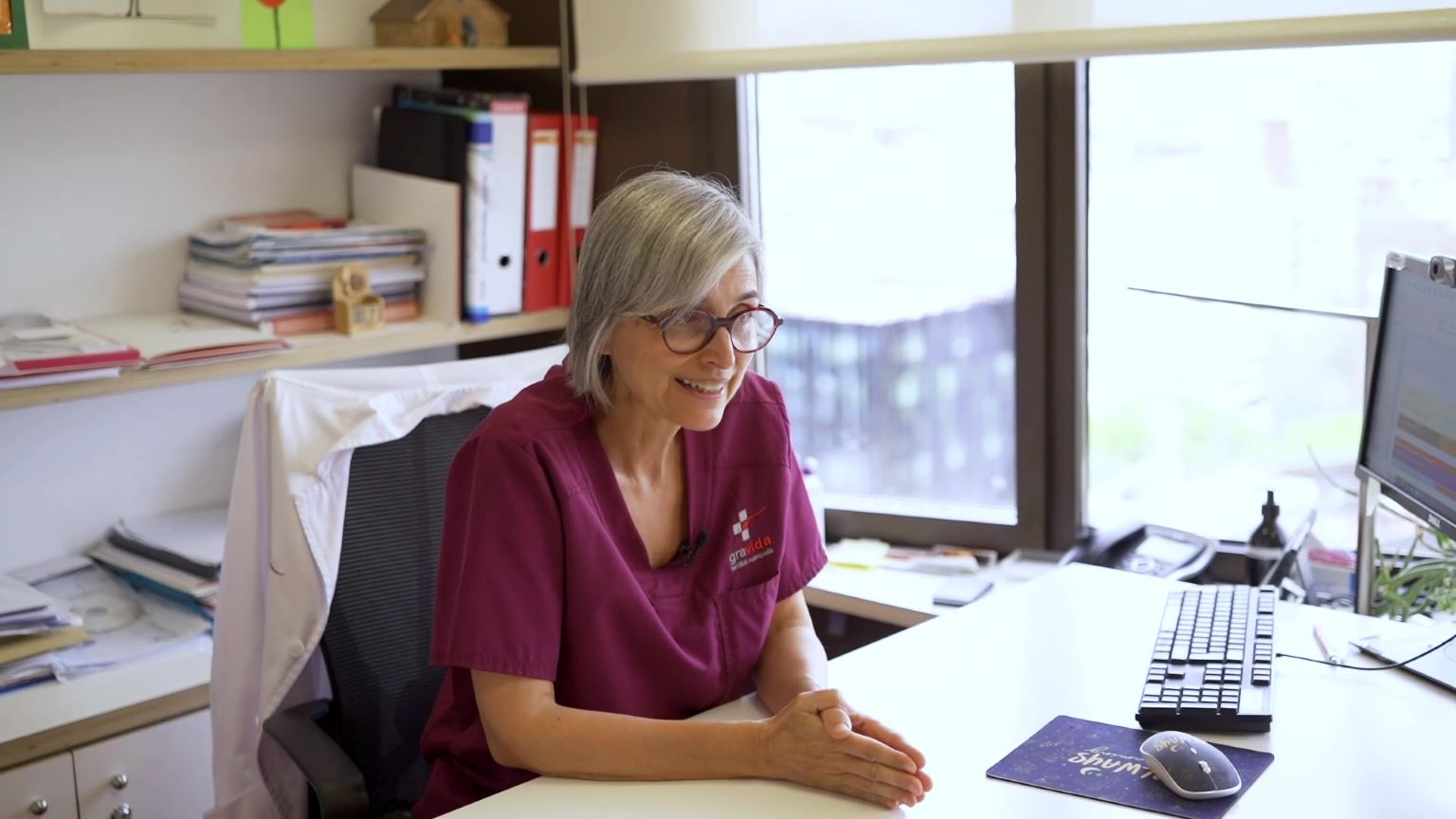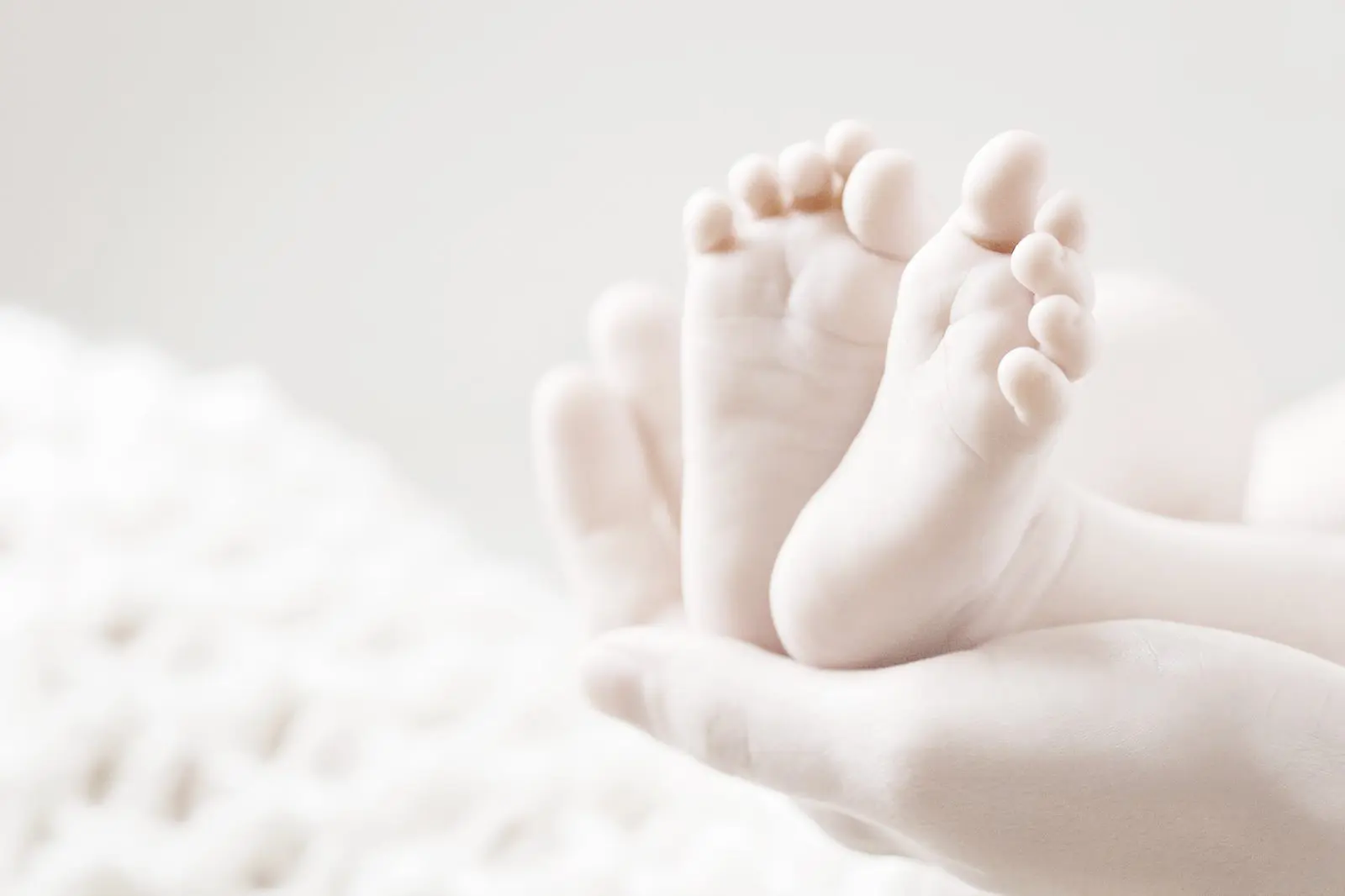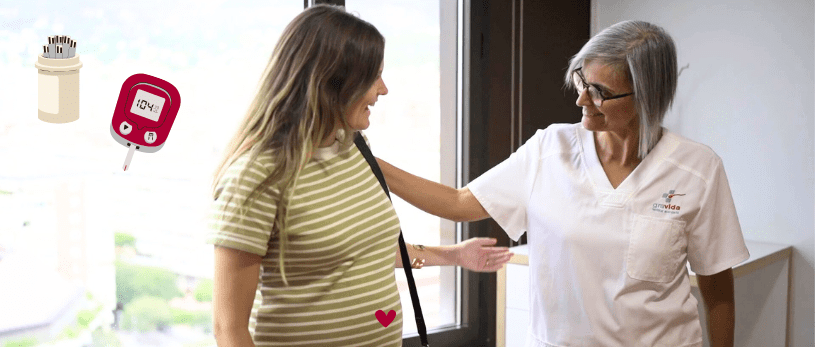
Genetic compatibility test
We detect genetic risks before conception to help you form a healthy family.
What is the Genetic Compatibility Test?
Alterations in a single gene are sufficient to cause so-called monogenic diseases. This test allows identification of the most frequent alterations in the genes involved in this type of diseases and, once the carrier status of each member of the couple is detected, determine if there is an increased risk of transmitting any of them.
It is mainly used in cycles of oocyte reception. If until now it was customary to choose among potential donors based on phenotype similarities with the recipient woman, now it is also possible to rule out those egg donors who would entail an increased risk of transmitting genetic diseases.
However, it is also available for those couples who want to know more about their genetic compatibility. In case both members of the couple turn out to be carriers of alterations for the same gene, there are several options to ensure the birth of healthy children, such as performing an in vitro fertilization cycle with preimplantation genetic diagnosis to avoid the transfer of affected embryos or replacing one of the gametes with gametes from a genetically compatible donor for that specific disease.
In which cases is it indicated?
Treatments with gamete donation (especially oocytes), to prevent the genetic combination between the egg donor and the recipient’s partner from increasing the risk of transmitting recessive diseases.
Couples without a diagnosis of infertility or people who wish to carry out safe reproductive planning, with the aim of minimizing the risk of transmitting genetic diseases to their offspring, even outside the context of assisted reproduction.
Family history of genetic diseases, even if a specific mutation has not been identified.
Consanguineous couples (with some degree of kinship), as they have a higher probability of sharing mutations in the same genes.
Meet our assisted reproduction specialists
Frequently Asked Questions
Real opinions from our patients
Nos atendió la doctora Anna Galindo, una profesional increíblemente amable, cercana, siempre con una sonrisa, que te explica todo con claridad desde el primer momento. Nos pidió unas analíticas y, por suerte, todo salió bien.
En una visita rutinaria, me explicó con muchísima paciencia que estaba justo en mi periodo de ovulación y que, según los resultados, no necesitábamos ningún tratamiento complejo, solo un pequeño empujón con suplementos vitamínicos. Nos recetó unas vitaminas y, sinceramente, fue como magia… ¡ese mismo mes me quedé embarazada!
Recuerdo perfectamente que nos dijo con gran humildad: “Espero que no tengáis que volver aquí para ningún tratamiento.” Y así fue. Es una doctora que no busca venderte tratamientos innecesarios, como ocurre en otras clínicas, sino que apuesta por lo más natural y respetuoso con tu cuerpo.
También quiero dar las gracias a la doctora Laura Gomila, a quien conozco personalmente. Siempre ha estado pendiente, aconsejándome y resolviendo mis dudas con muchísimo cariño.
Recomiendo Grávida sin dudarlo, no solo por su profesionalidad, sino por el trato humano, la humildad y el amor con el que trabajan. Estoy profundamente agradecida por haber encontrado este equipo.
Partíamos de dos negativos de otra clínica, y encontrar esta clínica y esta doctora fue todo un acierto, nos hizo todas las pruebas necesarias para dar con el problema, lo tratamos, y bingo, nos quedamos a la primera! 😁 estamos muy muy agradecidas con el trato de todo el personal, pero en especial con el de nuestra doctora, que nos fue muy clara desde el minuto uno, y supo acompañarnos en este proceso que para nosotras no resultó fácil, por las experiencias anteriores! Ahora nos encontramos desbordantes de felicidad a la espera de la llegada de nuestro segundo bebé!
Por supuesto, hay pruebas que podríamos habernos hecho antes, pero este sigue siendo un área que aún no se ha explorado a fondo. Cada paciente tiene una situación muy diferente y cada médico tiene su propio enfoque. Mi esposa se embarazó después del segundo intento de FIV, y encontrar una solución fue un trabajo en equipo entre nosotros y Gravida.
Acudir a una clínica privada cuesta dinero, y la FIV es una experiencia psicológica difícil. Debe tener en cuenta que los ginecólogos responden a nuestras preguntas y nos orientan, pero la decisión de realizar más pruebas o tratamientos antes de la implantación depende de la paciente, por lo que debe participar.
Contacten con María, Noémi, Andrea… y con todos los que se me olvidan.
TODO EL EQUIPO, incluyendo a mi doctora Carla Rojas y a mi embrióloga Ana, todos extremadamente atentos y profesionales.
Mis ojos brillaron al instante.
Estaba súper feliz después de recibir la transferencia el lunes 13 de febrero de 2023.
Sentí todo después (mi implantación sobre las 18:20 y luego la implantación el jueves por la mañana) y mi cavidad seguía funcionando… 5 días después de la transferencia, quería saber si mis sensaciones eran reales. Por eso, el sábado 18 de febrero, me hice la prueba beta a las 10:00 y el resultado llegó por la tarde. Estaba temblando, tenía lágrimas en los ojos con 39 UI, lo que corresponde a mi implantación el jueves por la mañana (16 de febrero). 48 horas después, el lunes 20 de febrero (ayer), me hice otro análisis de sangre a las 10:00 y descubrí 161 UI. 😍 ¡Qué alegría! 🤩 ¡Por fin tengo a mi pequeño dentro de mí! Ha construido su nido, que terminará mañana, miércoles 24 de febrero, a la hora de la ovulación 14.
A todos, por cierto, hay un grupo en Facebook llamado “PmetteschezGravida”. No duden en unirse.
Gravida y su equipo estarán siempre en mi corazón.
Primera transferencia a los 46 años.
A todos: ¡CREA en ti mismo, pero sobre todo, hazlo con el equipo de Gravida! ❤️ ¡Son adorables! Sinceramente.
Nora, también conocida como Sibel Sara
Deseando que todo vaya bien para poder volver a verla y presentarle a nuestro bebé 🥰
La recomendamos 100%. Gracias por todo Laura 😘
En especial queremos agradecer a la Dra Galido por el trato directo con ella y a la Dra Rojas que nos atendió en ocasiones puntuales y nos hizo sentir igual de bien atendidas.
Ahora estamos en proceso de cumplir el sueño que tanto llevamos esperando. GRACIAS!
Después de más de 10 años luchando por ser madre, llegué por casualidad a la web de Gravida. No me arrepiento porque hoy soy mamá de un pequeño que tiene casi 6 meses.
Tuve un equipo muy profesional y atento. El protocolo salió bien a pesar de la distancia. Hubo muchos correos electrónicos y llamadas telefónicas pero valió la pena.
Mi pinchazo salió bien al igual que la transferencia. Estuviste atento a pesar de la barrera del idioma. Me sentí a gusto, no estresado ni ansioso.
Mi FIV funcionó en el primer intento en su hospital. Si bien tuve que enfrentar muchos fracasos inexplicables.
Hoy redescubrí la alegría de vivir mirando a mi hijo que me llena de felicidad.
Al tener embriones en stock estoy considerando un segundo embarazo.
Gracias a todo el equipo de Gravida. Gracias a ti gané mi lucha contra la vida por la vida.
Con toda mi sinceridad.
Ha sido un placer poder vivir ese proceso acompañada de ella, tanto por el trato como por la profesionalidad.
También estamos muy agradecidos con la atención recibida por parte de todo el equipo de enfermeras, embriólogas, y recepción.
¡Muchísimas gracias!
todo unas personas excelente. Yo estoy
mega feliz. No hay palabras para agradecerle este regalo a mi Dios, a Gravida y ami bb por escogerme. Full recomiendo la clínica Gravida
Muy agradecidos con todos!
Realizamos una fiv y durante todo el proceso se nos explico claramente en que consistía el proceso, y sobretodo fueron realistas con los porcentajes de éxito. Nos sentimos bien asesorados y acompañados.
Todo el personal es muy profesional, queremos agradecer especialmente a la doctora Gomila. Esperamos poder ir a presentarte a nuestro bebé.
Request your first free visit
First visit is free
Request information without commitment







